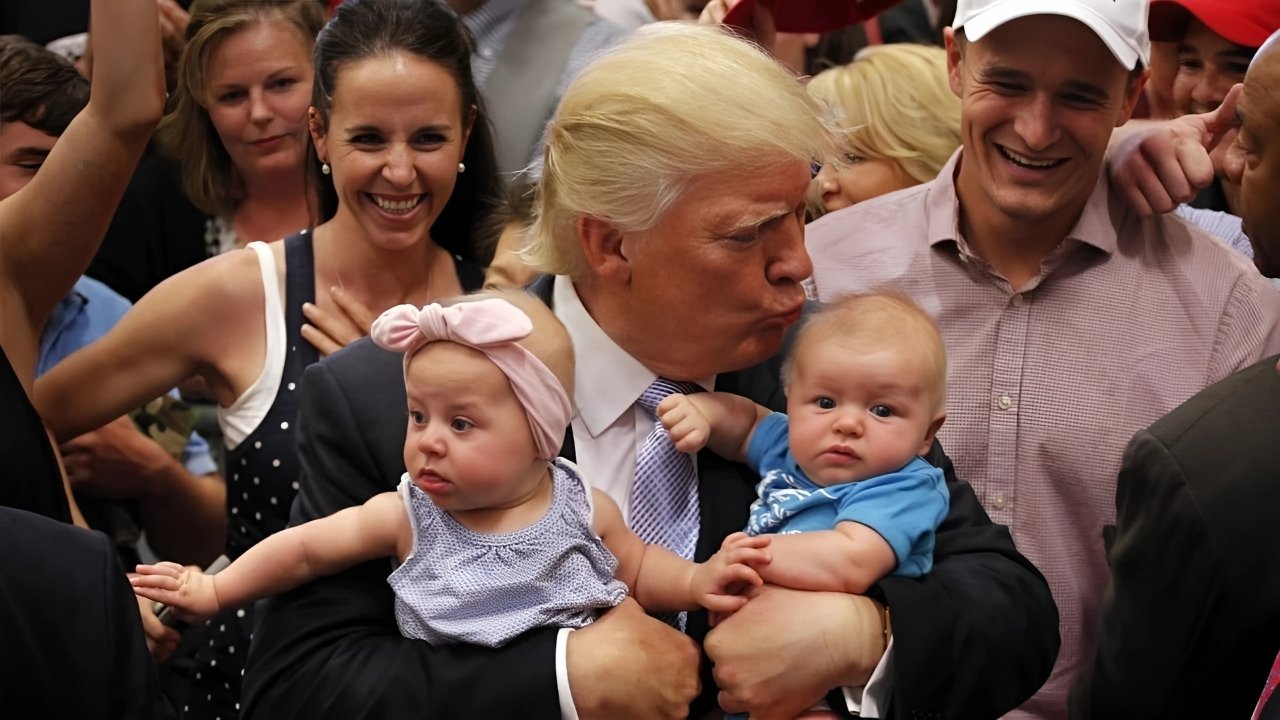In a sweeping pro-family proposal, former U.S. President Donald Trump has introduced a new government-backed investment plan aimed at securing the financial future of American children. The plan promises a one-time $1,000 tax-deferred investment account for every U.S. citizen born between January 1, 2025, and December 31, 2028.
Unveiled at a White House roundtable featuring top business executives, the initiative titled the Trump Account is part of a broader legislative package Trump calls the “big beautiful bill.” The accounts are designed to track stock market performance, with private contributions of up to $5,000 per year also permitted under guardian supervision.
Table of Contents
Trump Unveils $1,000 Investment Accounts
The Trump Accounts would function similarly to tax-advantaged savings accounts, with a one-time federal deposit of $1,000 for every eligible newborn. These accounts would be managed by the child’s parent or legal guardian and are intended to grow based on the performance of the overall U.S. stock market.
According to the proposal, the accounts would remain tax-deferred until withdrawal. Although the structure resembles existing college savings plans such as 529 accounts, the Trump Accounts are not restricted to educational use.
Program Details at a Glance
| Feature | Description |
|---|---|
| Eligibility | Children born Jan 1, 2025 – Dec 31, 2028 |
| Federal Contribution | One-time $1,000 per child |
| Additional Contributions | Up to $5,000 per year by guardians or third parties |
| Tax Treatment | Tax-deferred growth based on stock market performance |
| Account Control | Managed by parents/guardians until the child reaches maturity |
CEOs Join Forces with Public Support
The announcement was met with substantial enthusiasm from corporate America. CEOs from Goldman Sachs, Uber, Dell Technologies, and Robinhood pledged billions in private contributions to complement the federal deposits. Trump called the participating executives “the greatest business minds we have today,” highlighting their role in scaling the initiative for employees’ children.
These commitments mark a significant public-private collaboration, potentially expanding the reach of the program beyond federal support. Private companies could offer additional contributions as part of employee benefits packages.
Legislative Hurdles and Budget Impact
Despite passing the House, the broader bill that contains the Trump Account proposal faces resistance in the Senate. The Congressional Budget Office (CBO) estimates the package would add $2.4 trillion to the national debt over the next decade and lead to 10.9 million fewer Americans having healthcare coverage by 2034, largely due to cuts to Medicaid and food assistance.
The accounts cannot be implemented independently and are contingent on the full passage of the accompanying legislation, which includes new welfare reforms and a proposed remittance tax to help fund the program.
Support and Skepticism from Financial Experts
While many support the idea of early-life financial planning, some financial advisors warn that the $1,000 investment, though symbolically powerful, may not yield substantial returns without consistent contributions and favorable market performance.
A list of concerns raised by experts includes:
- The account’s long-term viability depends on stock market conditions
- Lack of clarity on fees, withdrawal rules, and fund management
- Potential overlap or competition with existing savings tools like 529 plans
Global Comparisons Add Context
Similar initiatives have existed abroad. The UK’s Child Trust Fund (2002–2011) and Singapore’s Baby Bonus Scheme provide real-world examples of government-seeded accounts for children. While the UK program was phased out due to fiscal constraints, Singapore continues to offer matched contributions and cash bonuses for families.
| Country | Program | Status | Key Feature |
|---|---|---|---|
| United Kingdom | Child Trust Fund | Discontinued | One-time voucher, tax-free savings |
| Singapore | Baby Bonus Scheme | Ongoing | Government-matched savings + cash gift |
The Trump Account proposal represents a major step toward linking economic growth with family investment. However, its future depends on Congressional approval of the full budget bill. Until then, the promise of a $1,000 financial head start for every American newborn remains a concept awaiting legislative backing.







